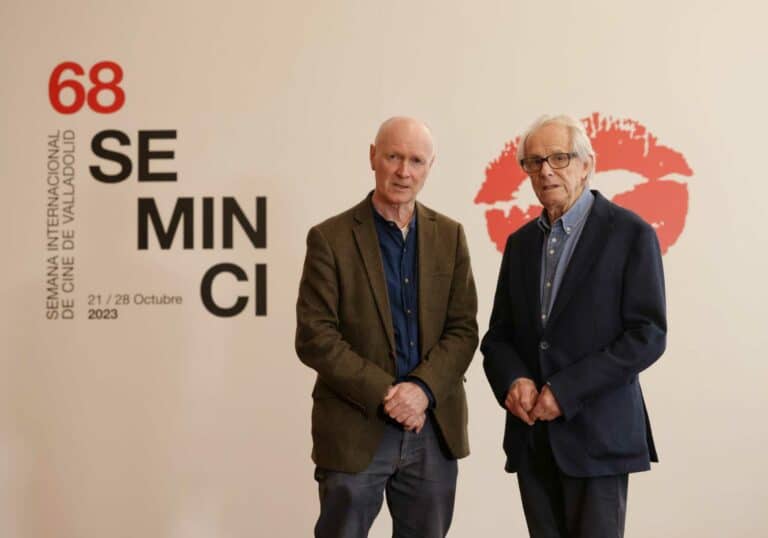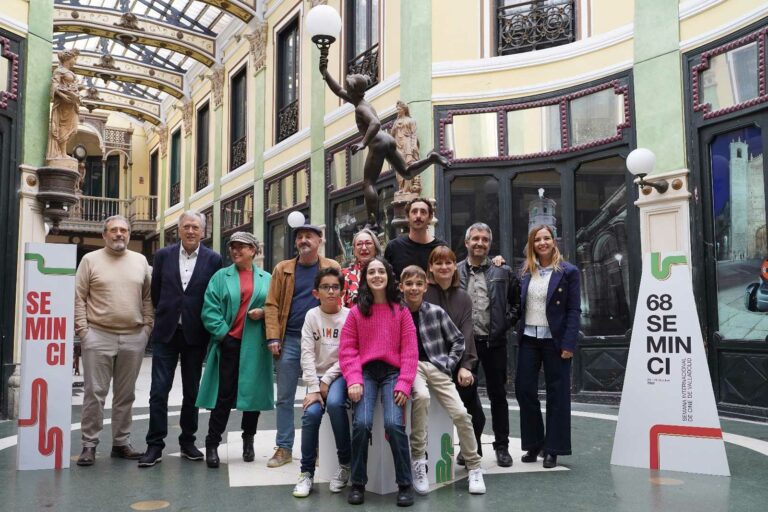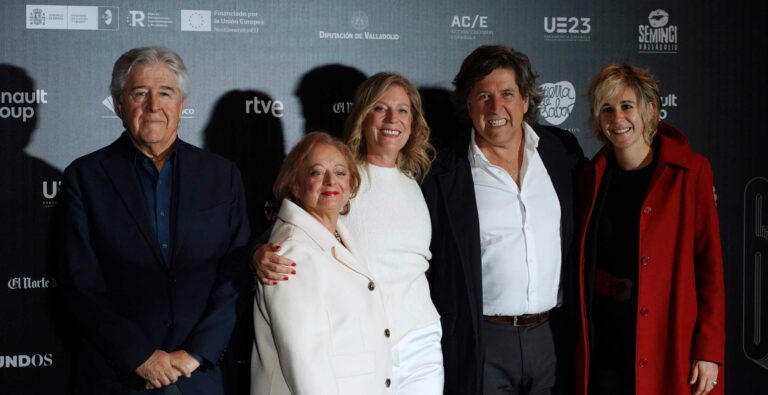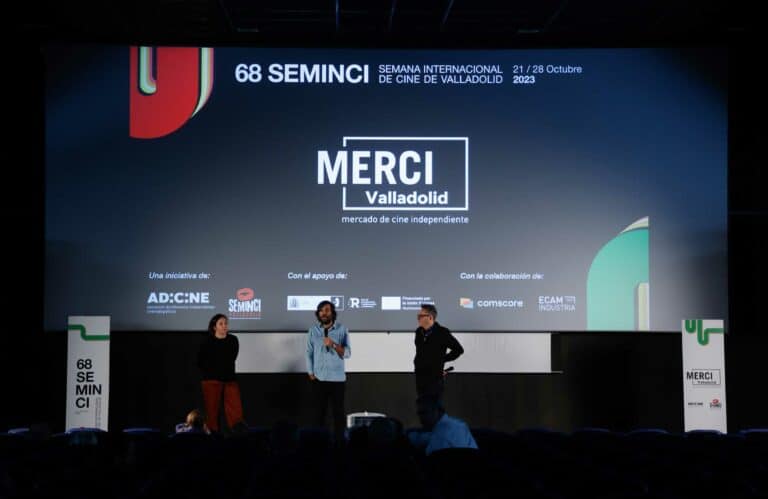Argentine director Juan José Campanella offered today, Thursday, October 28th 2021, the second of the two master classes scheduled at the 66th Seminci, a lecture at which he recalled his beginnings, his training stage and some of the milestones of his career, as well as referring to the situation that the seventh art is currently going through, which, in his opinion, as a medium now has “its life on television.”
“For me a film that is going to be shown on a platform is a television film. A cinema film is to be seen in the cinema,” emphasised the filmmaker, awarded this year with one of the festival’s Spikes of Honour, before going on to stress the importance of enjoying it in cinemas, surrounded by other people with whom to react to what you see.
The situation that the world has been going through in recent times, with all the cinemas closed, has meant that film and television premieres have been almost simultaneous, something that in the case of Hollywood is usual since, he pointed out, “everything that is presented is for television or to be shown on television.”
Campanella, who recalled his time as a film student both in Argentina and in the United States, referred to the importance that some of his lecturers had in his career, such as Aida Bornic and José Martínez Suárez, and the lessons learnt from that period, in which he discovered, for example, that what was important was not what the actors said, but how they said it.
That concept of “emotional action” that he uses so much, comes from back then, from a time when he began to discover a type of cinema, “art cinema”, which forced him to make a “quite important readjustments of head and mentality” with issues, for example, such as the distinction of genres or the identification of “the grey areas.” “I’m a fan of film schools, they are very valuable”, he acknowledged before highlighting the influence they have had on Argentine cinema, which “did him a lot of good,” as its variety and richness is the result of exposure to different styles and their analysis.
Freedom and “Rhinoceros Skin”
In relation to Latin American cinema, whose boom he linked both to the role played by the schools themselves and to the cheapening of technologies, Juan José Campanella acknowledged that he has never been part of the so-called “New Argentine Cinema” and, therefore, has considered it a mistake to launch a project to fit into the parameters of a certain movement because, in the face of this, you have to do what you want and with the sensitivity you want to give it, a contribution that is definitely up to the director.
“I really like what’s happening with Latin American cinema, the attention that is being given to it, but it would be great to see other things, not just the most gruesome things that happen in our countries,” he said before pointing out that his stories have more to do with finding the “epic” in “small middle-class dramas.”
To work in film you need, according to the Oscar-winning director, “rhinoceros skin.” “It is essential because everything conspires against us, nothing conspires in our favour! Our family at most sees us with mercy,” he confessed, laughing, while recommending those present acquire the skill of separating destructive criticism from constructive criticism; although, in any case, his recommendation was to ask those who launch criticism for an alternative.
The team is a very important part of the process when it comes to tackling a production and, in his case, he considers himself fortunate to work regularly with the same actors, with whom he shares 80% of similarities. With them, he explained, he works in a very specific way: he does table rehearsals in groups in the two weeks prior to shooting to reach that moment with clear objectives and even some modifications to the script.
To have a shooting plan; to write a first draft of the script with the ideas and let it rest for a while so that the important themes can emerge; to take advantage of the resources of the film schools, which nowadays allow you to leave with a team already created to start the race; not to start the pre-production without having the script ready; To be convinced that you can’t make a good film with a script that you don’t like; to understand that part of the director’s job is to “direct the traffic of personalities” within the filming and to be accompanied by people with whom you have a good relationship were some of the other keys shared by Campanella throughout his master class.





















































